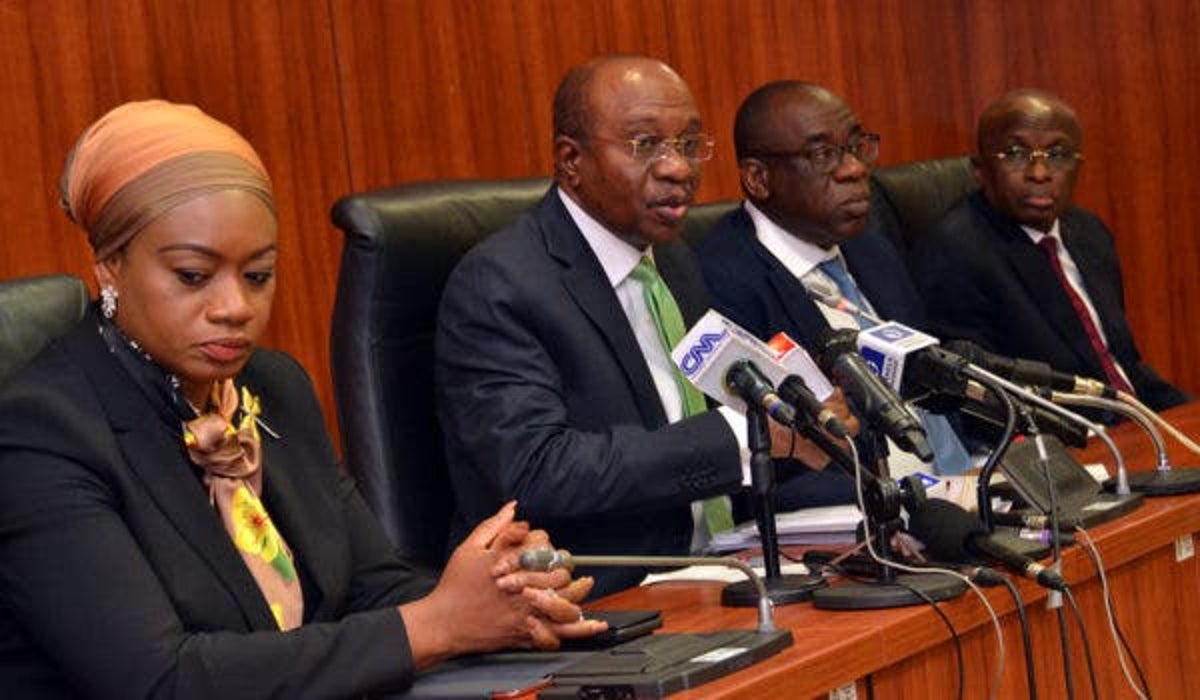Data from the Central Bank of Nigeria has shown that the apex bank has discontinued its intervention programme for the real sector of the economy which had hit N4.81 trillion as of November 2022.
According to the communique of the recently concluded monetary policy meeting held on the 23rd and 24th of January 2023, the real sector intervention as of January 2023 remained unchanged compared to November 2022.
This followed the move by the CBN to aggressively combat the rising inflation by mopping up excess liquidity in the Nigerian economy.
The apex bank has disbursed a cumulative sum of N1.07 trillion to over 4.6 million smallholder farmers cultivating or rearing 21 commodities across the country under the Anchor Borrowers’ Programme (ABP).
The Bank also released N745.31 billion to finance 680 large-scale projects in agro-production and agro-processing under the Commercial Agriculture Credit Scheme (CACS).
READ ALSO: Banks to pay customers with only N100, other lower denominations over the counter
In addition, the Bank has disbursed N2.15 trillion for 437 projects across the country, comprising 240 in manufacturing, 91 in agriculture, 93 in services and 13 mining sector projects, under its N1 trillion Real Sector Facility.
Under the 100 for 100 Policy on Production and Productivity (PPP), the Bank has disbursed a cumulative sum of N114.17 billion to 71 projects in healthcare, manufacturing, services, and agriculture.
CBN has disbursed a sum of N44.58 billion under the Export Facilitation Initiative (EFI), to fund export-oriented projects.
The Bank has released N5.00 billion under the Intervention Facility for the National Gas Expansion Programme (IFNGEP) to promote the adoption of compressed natural gas (CNG) as the preferred fuel for transportation and liquefied petroleum gas (LPG) as the preferred cooking fuel.
READ ALSO: Old notes: Nigerians give kudos, knocks to CBN deadline extension
Under the Agribusiness/Small and Medium Enterprise Investment Scheme (AgSMEIS) and Micro, Small, and Medium Enterprise Development Fund (MSMEDF), to support entrepreneurship development in the country, the bank has disbursed a sum of N150.22 billion and N96.08 billion, respectively.
The Central Bank of Nigeria has grappled with a problem of rising currency in circulation in the country, with the most worries being the monies outside the reach of the banks.
The apex bank in a bid to curb the rate of inflation raised the benchmark interest rate (MPR) by a cumulative 500 basis points last year, which yielded less than desirable results. Hence, the CBN sought to reduce the amount of money supply and currency outside the banking system by reducing its economic intervention.
The new naira notes policy has also served the bank’s objective of recovering a large chunk of the funds being held by individuals, which has rendered monetary policy tools less potent against inflation.

 Health6 days ago
Health6 days ago
 Entertainment1 week ago
Entertainment1 week ago
 Crime6 days ago
Crime6 days ago
 Education1 week ago
Education1 week ago
 Health1 week ago
Health1 week ago
 Comments and Issues1 week ago
Comments and Issues1 week ago
 Latest7 days ago
Latest7 days ago
 Football1 week ago
Football1 week ago

